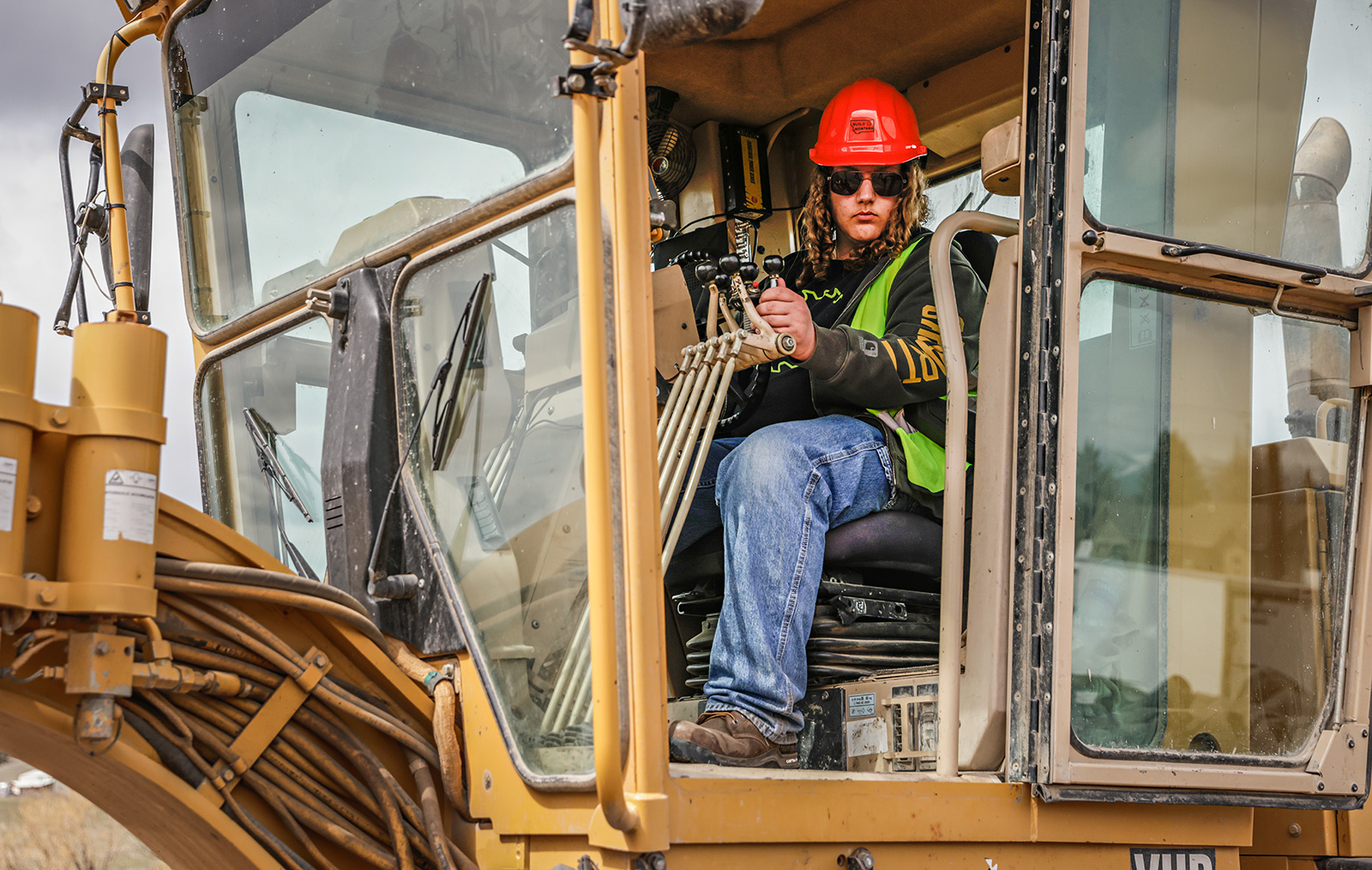Constructing Careers
The Montana Contractor’s Association launched BUILD Montana at Flathead High School this spring to introduce construction careers to students while helping solve workforce shortages
By Maggie Dresser
At Schellinger Construction, Kyle Schellinger has struggled to recruit a full staff to work for his Columbia Falls-based civil and highway construction company, where crews work on large-scale roadway projects for agencies like Montana Department of Transportation (MDT) and the Federal Aviation Administration (FAA).
“It’s been really tough,” Schellinger said. “We are traveling around the western half of the state and we’re only able to work in the summer. We have to do a lot in a short season with 50- to 60-hour work weeks and workers have to leave their families all week.”
Schellinger has been working with the Montana Contractor’s Association (MCA) for the last few years where board members have developed BUILD Montana, a pilot program designed for high school students that introduces them to careers in construction.
Last year, the MCA launched BUILD Montana in collaboration with the Billings school district, Knife River Corporation and RDO Equipment Co. to form a course for high school juniors and seniors.
After a successful pilot program that six Billings students participated in, Schellinger helped launch a BUILD Montana course in Kalispell, collaborating with Flathead High School and RDO Equipment Co.

Rob Hunter, the Flathead High School Career and Technology Department leader, says officials with BUILD Montana approached him with the idea last year, and while the course was not accredited this year, it helped his students explore different career opportunities and he has about seven students signed up for next spring.
“It’s important to the construction industry because they are so shorthanded, but it’s important to us at the high school to fill that gap between the need and finding the students who want to do it,” Hunter said. “We are constantly looking for opportunities for career exploration. There are so many students who aren’t going to college.”
Students begin the course, which will become accredited next year, taking online classes through John Deere University and eventually work on site with construction crews where they learn site safety and equipment function and inspection. Once the weather warms up, students go to the company’s gravel pits to learn how the gravel crushers operate.
“The students thought it was pretty neat,” Hunter said. “The guys teaching them said they did a great job on their first day out.”
At the end of April, students tagged along with crews at the Dern Road and Springcreek Road intersection for a week to learn how to operate equipment, including a front-end loader, a skid steer and a mini excavator.
“They learn about what life is like working in construction,” Schellinger said.
After the Billings pilot program ended last year, MCA Executive Director David Smith said two students went on to work for Knife River following the course.
“One of them is making $22.50 an hour,” Smith said. “A year ago, that student had minimal skills and pretty soon after that he started working construction on a gravel pit … The team that works with him at Knife River is so supportive and they are not going to let him fail.”

After learning a from University of Montana Bureau of Business and Economic Research survey that 65% of students would not take a job in the construction industry, even if it paid a $100,000 salary, Smith set out to recruit the remaining 35% of students who would.
“That’s where it all started,” Smith said. “In 2020, we got together between the equipment dealer’s and our organization and started talking and developing these ideas.”
While the program has been focused on road construction so far, Smith says the Kalispell program will likely expand into vertical construction, reflecting the valley’s development and growth.
“It’s one of the most exciting things I’ve ever been involved in,” Smith said. “Seeing a kid get excited about their adult life and the potential that’s out there. Some young people don’t want to be in an office and by exposing them to the world of construction, you can give them a lot more opportunity.”